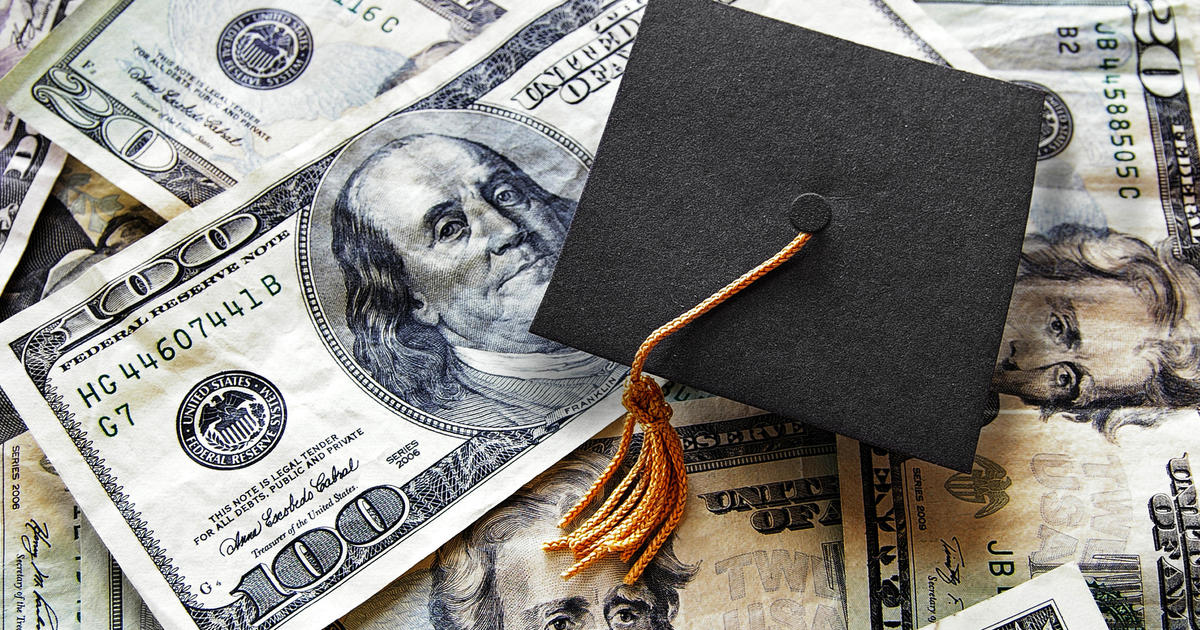Getty Images/iStockphoto
It’s no secret that student loans have become a major economic burden. Americans owe a combined student debt of $1.7 trillion. This is one of the reasons President Biden announced a public appeal student loan forgiveness program in August.
While the administration prepares for the application process, you can take steps now to try to reduce your costs under existing programs and practices, whether or not you qualify for that particular federal pardon program. And if you took advantage of the COVID-19 pandemic-related payment pause in federal student loan programs, you probably know that it ends on December 31, 2022.
That means it’s time to look for savings.
If you currently have a private student loan, the fastest way to save money is to refinance. Start exploring your options and start the process today.
There are, however, strategies that work for both private and public student loans. Whether you are looking to take out a student loan for the first time or look for ways to reduce your existing debt once payments resume, you have options.
Here are some of the best ways to save by loan type.
How to Save Money on Private and Federal Student Loans
- Borrow only what you need. It’s always a good idea to review your long-term budget, but it’s especially helpful if you’re just starting to consider loans. Take a step back and consider what your loan should cover – and don’t underwrite more than that.
- Configure automatic payment. Federal student loans and most private lenders offer a discount if you set up automatic payment. For federal loans, it’s 0.25% off the interest rate. Some private lenders offer an even bigger discount. Another advantage: automatic payment displays a good payment history, which helps your credit score.
- Check if interest payments be tax deductible. The Internal Revenue Service (IRS) offers a tool to determine if the interest on your student loan can be deducted from your taxes. Deductions can be up to $2,500 for loans used solely for education.
- Make additional or higher monthly payments. You can choose to make additional payments or higher payments that are slightly higher than your monthly statement. Be sure to specify that you want the supplement to go towards the main part of your student loan. Payments go to fees, then interest, then principal. This is how extra payments save you time and interest (if you tell the repairman to apply them to the principal). Be sure to check with your Federal Student Loans Servicer or private bank or financial institution to ensure that additional funds are applied correctly.
- Check out student aid grants and scholarships. There are many grants that do not require repayment. You can also check scholarships and grants by state, field of study, group, or organization.
How to Save Money on Private Student Loans
- Refinance or consolidate at a lower rate. If you have a good credit score (usually 670 or more), a steady job, money in an emergency savings account, and probably don’t qualify for federal aid programs, refinancing a private student loan may be a good option . Many lenders are looking for a debt to income ratio less than 50% to refinance a student loan. If you’re considering refinancing your loan, getting started is easy. Talk to a lender today and start saving.
- Buy low fares. Private lenders offer variable rates, so shop around for the private student loan with the best terms. Be sure to do the math for the loan term to ensure you get the student loan that’s right for you.
- Look for loan discounts. Look for discount offers such as waiving loan origination fees and other costs when determining which bank or financial institution can meet your needs. Don’t forget to do the math on the entire loan repayment as well as the monthly costs to make sure you’re really saving money overall.
How to Save Money on Federal Student Loans
- Check forgiveness, cancellation and release options. In addition to the Biden administration’s new pardon program, there are many existing pardon and rescission programs. If you are approved, you will no longer be required to make student loan payments, including for those in military service and certain non-military government jobs. If you are permanently disabled or if the school where you received your public student loan is closed, you may be eligible for a student loan discharge.
- Federal Student Loan Consolidation. Ultimately, consolidating your student loans can save you money and time. Although consolidating federal student loans generally won’t lower your interest rate, it will lock you into a fixed rate so your payments don’t change, providing stability. These direct consolidation loans can also help you qualify for a utility loan forgiveness.
- Pay the interest on the loan while you’re still in school. This avoids compounding (when interest payments are rolled into the principal of your student loan, giving you a larger balance to pay off after your grace period ends). When interest on a student loan is capitalized, you pay more in the long run because you’re ultimately paying interest on a larger balance.
- Carefully review loan repayment plans each year. There are several types of repayment plans, including those that reduce monthly payments based on income level. But beware, the balance can grow quickly due to interest compounding and you could end up owing more than the original loan amount.
Remember that different options apply to different types of loans – not everything applies to both. However, if you have private student loans, you can start the process of reducing payments by refinancing your loans now.


